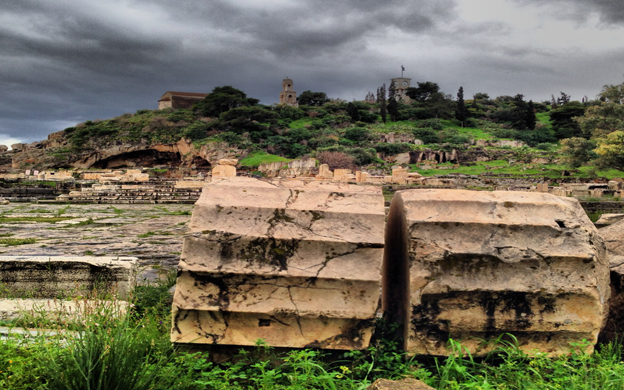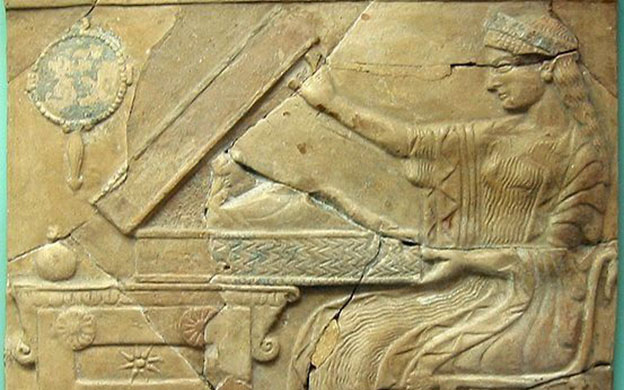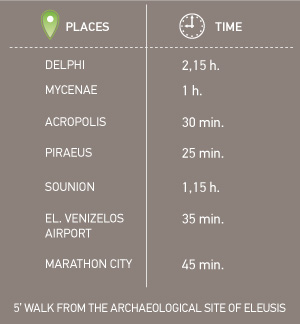ELEFSINA - WHERE HISTORY MEETS THE FUTURE
Elefsina, a city of 50,000 inhabitants just 20 km from Athens, is renowned for its ancient history as well as for its more recent industrial development.
In ancient times it was one of the most important religious centres in Greece, retaining its sacred character over two thousand years and known across the world for the Eleusinian Mysteries.
The Myth
According to Greek mythology Pluto, Lord of the Underworld, abducted Persephone, daughter of the goddess Demeter, and took her down into his kingdom with the intention to wed her. Demeter desperately looked for her for nine whole days until she finally arrived in Elefsina. Here she worked as a governess in the palace of King Keleos, but eventually, when her identity was discovered, she asked that a temple be built in the honour, where she locked herself up for a whole year mourning the loss of her daughter. During these twelve months not a single seed germinated. Much concerned, Zeus sent his messenger Hermes down to Pluto to see if the situation could be resolved. It was finally agreed that Persephone would stay half the year in the Underworld with her husband and the other half in the world above with her mother. When this compromse was reached Demeter allowed the earth to bear fruit again, and this is why even today cereals are known in Greek as demetriaka. The best cereal crops have always grown on the Thriasio Pedio - otherwise known as the Plain of Elefsina.
Modern-day visitors can admire the hill with its ancient remains and the museum in the city centre. Traces of the Sacred Way which joined Elefsina and Athens can still be seen. Since 1975 the city has been staging the AISCHYLEIA, a major cultural event organized each September and named in honour of the ancient dramatist Aeschylus.














